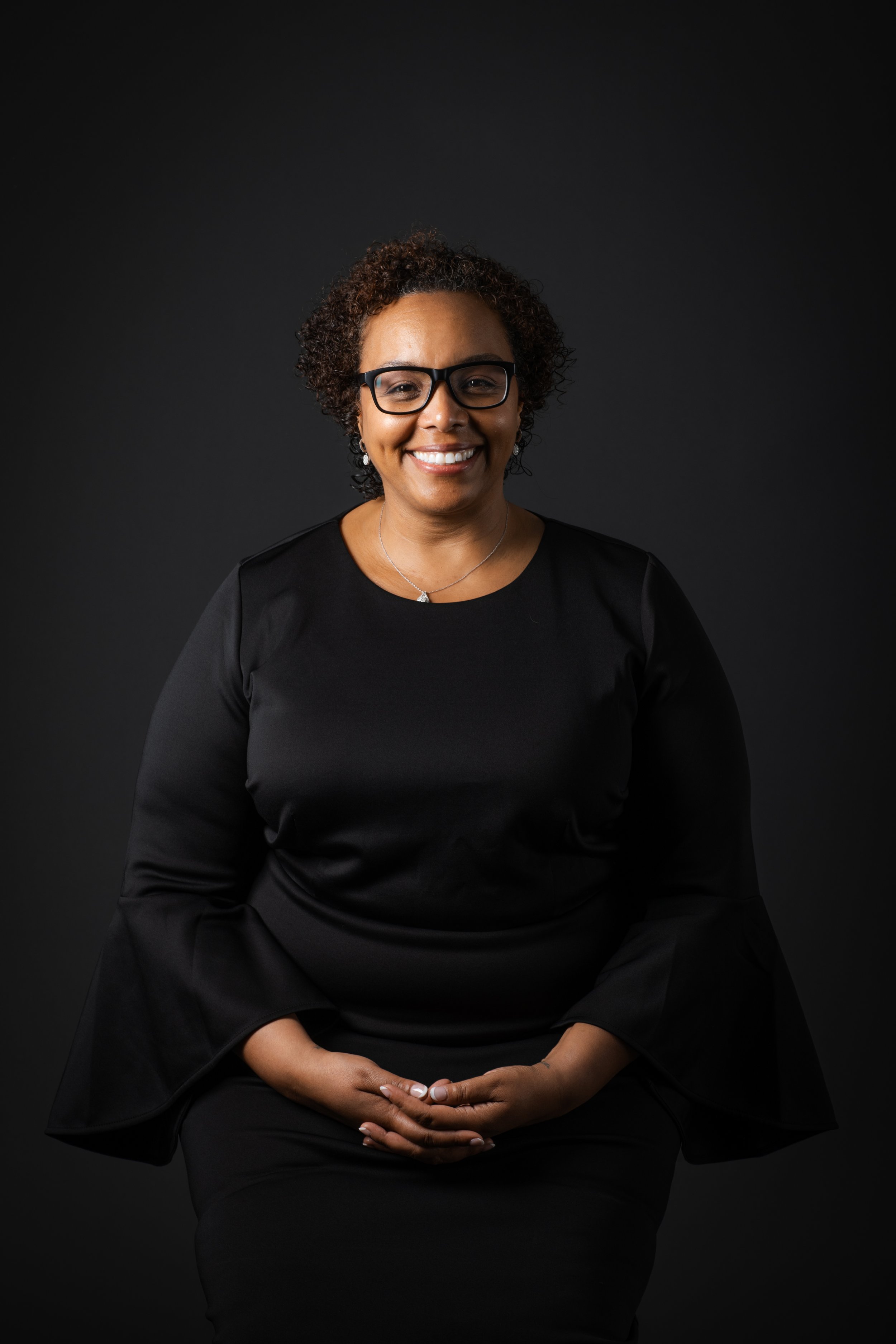Meet Krystal Williams
My name is Krystal Williams. I am an attorney and a senior business strategist. I hope that I am known for being a healer – a healer of my community. I grew up in North Carolina in a Habitat for Humanity community with the experience of childhood trauma related to being from a large Black family with limited means and a history of chronic mental illness. I was able to change my path through education, and as I’ve healed, I’ve noticed more brokenness. Our economic system and our judicial system do not treat everyone fairly, particularly people who look like me. For me, healing means standing in the gap between the people who are at a disadvantage and a system that needs reform and fairness.
When I think of Maine I think of two words – beautiful and scrappy. Maine is naturally a beautiful, beautiful state – even the smell of the air is exhilarating. One of the things that attracted me to Maine is the ‘can do’ spirit. People here roll up their sleeves and get to it.
There are two Mainers who regularly inspire me and both come from the legal field. Macon Bolling Allen lived in Maine in the 1800s and he was the first Black attorney in the U.S. He was licensed here in Maine and I am constantly inspired by his legacy. The other is Leigh Saufley – she is the Dean of the University of Maine School of Law and she was the Chief Justice of the Maine Supreme Judicial Court for nearly 20 years before that. She now leverages her immense knowledge to lead the only law school we have in the state. We are so fortunate to have her leading the charge in training the next generation of lawyers.
What do you see as Maine's biggest challenge?
Maine’s biggest challenge is its whiteness. I have to unpack that a bit because I know that statement may be off-putting to some. As one of the whitest states in the nation, we tend not to question how it became that way. There have been Black Mainers for many centuries, yet we don’t pause to think about how national trends have manifested in our state. We don’t give full thought to what it means to have an active KKK branch in Maine, something that started in the 1920s but is finding resurgence now. Without clear introspection, it’s hard for us to address - with integrity - the challenges that we have now regarding resource allocation, the integration of new Mainers, and caring for the multi-generational BIPOC Mainers who may still be struggling for inclusion even after centuries here.
What do you see as Maine's greatest asset?
Maine’s greatest strength is its people. Like I said, Maine is such a scrappy state. When I think of Macon Bolling Allen and the time that he became a lawyer here, he faced many of the same issues that are present now. There was immense racism and exclusion of Black individuals in professional and social settings. Nevertheless, Maine as a community saw his merits and the potential of this young, Black aspiring attorney. He and Maine together made history. When we move beyond the divisiveness present in so many of today’s important issues and connect with one another as Mainers and neighbors, that’s when we are our strongest.
What are some of your favorite places?
The list of places that I love in Maine is almost too long to even start! Central Provisions and Evo and the restaurants around Fore Street in Portland are all wonderful. And Rose Barboza, founder of Black Owned Maine, also started a Nigerian barbecue pop up called Oga Suya that gets a fair portion of my paycheck every month. The food is amazing!
Katahdin is my favorite outdoor place. I came to Maine because I through-hiked the Appalachian trail and fell in love with the state. For any through-hiker, Katahdin holds special meaning.
What makes women's leadership unique?
Generally, what makes women’s leadership unique is our focus on creating community. So many leadership books and trainings talk about how effective leaders empower others. There’s something about how women approach relationships that is, in general, more attuned to distributed power models.
If I could empower fellow women leaders in one way, I would want to empower them to rest! So many of us are involved in multiple projects and our days are just one long meeting. Sometimes, we feel that we can’t pause our involvement in these important and worthy causes to take care of ourselves. That’s why I think it’s important that we tell each other, “It’s ok that you are not here today. I know that you are still invested even if you need time for yourself.” Giving ourselves – and each other - permission to rest is so powerful and necessary.



